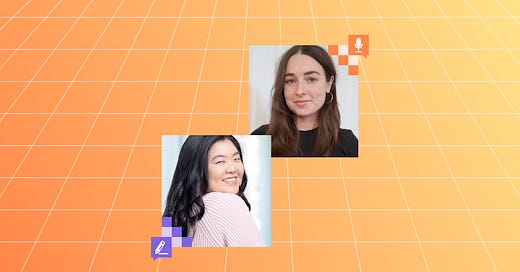Internet obsessions, 2025 predictions and open-source tech 101
Stories about the web you won’t find anywhere else.
The Sidebar is a limited-edition newsletter from Mozilla, the makers of Firefox. We’ll drop into your inbox every two weeks with tech insights, tips and behind-the-scenes stories about the web you won’t find anywhere else.
WHAT WE LOVED ON THE WEB THIS WEEK
ICYMI
If you’re an internet culture obsessive like us, you may know Kate Lindsay’s Substack, Embedded. This week she announced joining Slate’s ICYMI podcast, and the reveal episode is a delight (she has some very interesting theories about the future of the internet). Also delightful: our chat with her and her ICYMI cohost, Candice Lim, on the Mozilla blog. They talk about their internet obsessions, their first online communities and their wildest 2025 predictions.
Give it a read here.
— Kristina, editor at Mozilla
HOW-TO…
Get started on open-source development
So much of the tech we use online is built behind closed doors, leaving us with little say in how it works – or who it works for. Open-source technology takes a different approach, based on collaboration and transparency (qualities that set Firefox apart).
If you’re curious about getting into open-source development, or know someone who wants to make a difference shaping the next generation of tech, this guide is a great place to start.
THE COMMENT SECTION
When AI makes the call
For many — unless you’re a working writer or visual artist — it’s easy to brush AI off as a distant and existential threat. But AI is increasingly being used in ways that are causing alarm in many walks of life, from college admissions to health care access.
It’ll most certainly be used on you when you apply for your next job. An estimated 99% of Fortune 500 companies use automation and AI in some form during the hiring process, and a recent study from the University of Washington found that the LLMs (large language models) AI tools are trained on are overwhelmingly bias towards white men: “LLMs favored white-associated names 85% of the time, female-associated names only 11% of the time, and never favored Black male-associated names over white male-associated names.”
Advocating for fair and accountable AI is more important today than ever before. If you’re interested in learning more, read our Q&A with Gemma Galdon-Clavell, a tech policy expert and one of Mozilla’s 2025 Rise25 honorees.
ONE COOL PROJECT
An artist’s take on AI
“AI is shaking things up in the creative world, and I get why a lot of artists feel anxious,” says Manuel Sainsily, a TEDx speaker and an extended reality and AI instructor at McGill University and UMass Boston. “Whenever new technology comes along — especially in industries like ours — it brings fear. Fear of losing control, fear of being replaced. That’s real. But there’s another side to this: AI can open doors we never thought possible.”
Using OpenAI’s Sora, Manuel and co-director Will Selvis created “Protopica,” a short film that blends their shared culture with a futuristic, forward-looking visual aesthetic.
“AI allowed us to blend Caribbean heritage and futurism, creating a new form of storytelling that wouldn’t have been achievable with traditional methods,” Manuel says. “This shows how AI can preserve culture while pushing creative boundaries.”
You can watch “Protopica” here, and hear more from Manuel about his thoughts on AI and creativity here.






